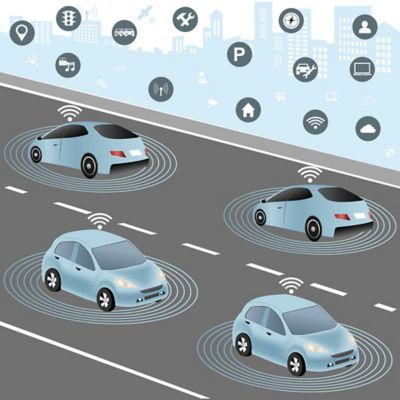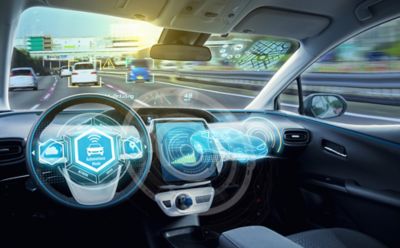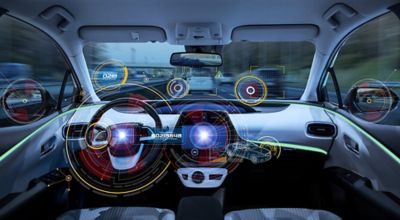-
-
Access Free Student Software
Ansys empowers the next generation of engineers
Students get free access to world-class simulation software.
-
Connect with Ansys Now!
Design your future
Connect with Ansys to explore how simulation can power your next breakthrough.
Countries & Regions
Free Trials
Products & Services
Learn
About
Back
Products & Services
Back
Learn
Ansys empowers the next generation of engineers
Students get free access to world-class simulation software.
Back
About
Design your future
Connect with Ansys to explore how simulation can power your next breakthrough.
Free Trials
Ansys Blog
December 20, 2018
Is IoT Driving the Autonomous and Electrification Trends in Automotive?
High-tech companies are influencing the automotive industry more and more thanks to major trends like the internet of things (IoT).
That’s because a prerequisite to autonomous cars and automotive electrification is connecting cars to the IoT.
When a car drives on its own it makes sense that it will communicate with other connected devices. If a smart traffic light knows it will change red, then having it notify all autonomous cars in the area is a good idea.
Connected cars will make autonomous
cars possible. Autonomous cars will
empower people to connect to other
technology while in the car
“This could [also get] outside information into the car for safety or convenience, such as knowing traffic conditions in advance,” says Burkhard Goeschel, automotive industry thought leader and head of the FIA Commission for Alternative Powertrain technologies.
In this video, Goeschel explains different ways the IoT will change the future of car design:
Video snippet of an interview between Rob Harwood,
global industry director at ANSYS, and Goeschel discussing
different applications of connecting cars to the IoT
The Autonomous Car and IoT Feedback Loop
Automotive cars communicating about traffic conditions isn’t the only way this technology will overlap with the IoT.
Goeschel argues that the IoT is one of the major reasons autonomous vehicles are a trend in the first place.
“The high-tech companies’ business case depends on the driver having a lot more time to be connected,” says Goeschel.
The high-tech industry is interested
in the automotive market
“So, a prerequisite to making the business case work is the realization of autonomous driving.”
This is a positive feedback loop. When autonomous cars become a reality, people can play with high-tech devices more often. Additionally, autonomous cars will need more high-tech devices to be on the IoT in the first place.
The Electrification and IoT Feedback Loop
The automotive industry’s electrification trend is also in a feedback loop with the IoT — and not just because most autonomous vehicles are expected to be electric.
The more car components become electrical the more these components can diagnose or monitor themselves.
The more these devices monitor themselves the more likely that data will be sent to a head office for study.
When cars become connected, the
data they collect can be sent to
the manufacturers for analysis
This communication will be done through the IoT.
With this data, car manufacturers can create a digital twin of the car. This twin can help companies track their car’s performance on the road by assessing how the car is reacting to its environment.
This analysis enables companies to proactively determine maintenance cycles and design fixes based on the actual condition of an individual vehicle.
In this video, Goeschel explains how the IoT can help engineers create a digital twin of a car and how that will change the way the industry designs vehicles:
Video snippet of the interview between Harwood and Goeschel
discussing digital twins of cars
The more information companies have on their car’s performance, the more they can process that data through a physics-based digital twin. The more they can process through the digital twin, the better they can optimize their future designs. This encourages companies to implement new IoT and electrification initiatives. As a result, the IoT is in another positive feedback loop with automotive manufacturers, this time revolving around electrification.
The future of car design is influenced by more than just the IoT. Motor sports and emission control are driving the future of the consumer car markets.


